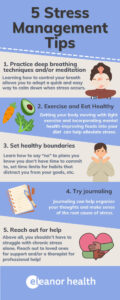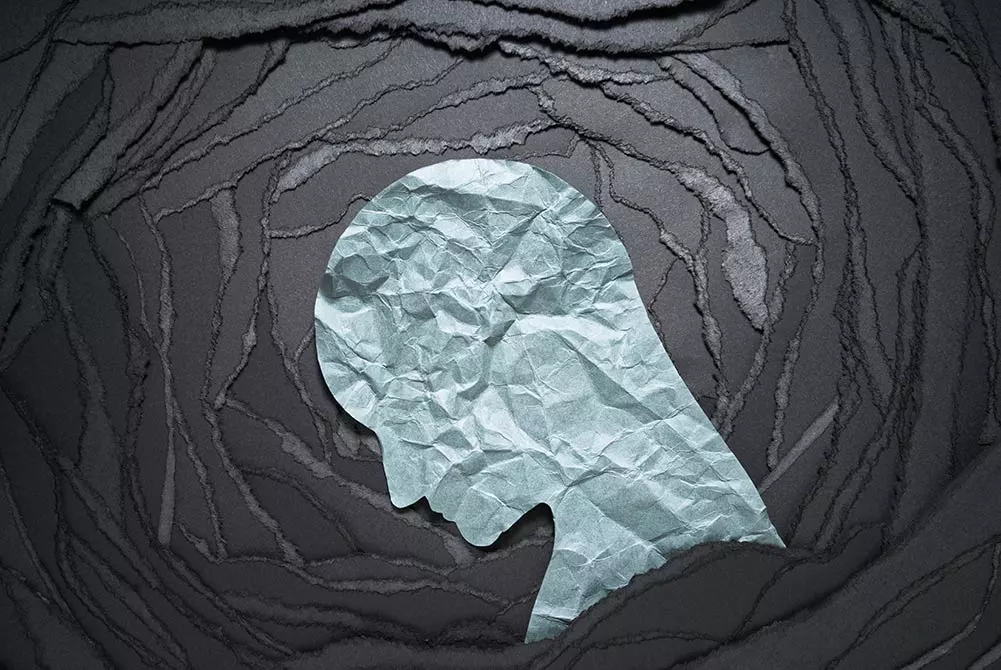Stress is something that everyone must deal with from time to time. However, too much stress can negatively impact many aspects of your life and well-being. Fortunately, there are many skills you can learn to help relieve stress. Although stress may have taken a toll on your life in the past, it is never too late to try to reverse these effects.
The majority of psychologists and psychiatrists recommend deep breathing exercises and meditation to people struggling with stress and anxiety. Learning how to control your breath allows you to adopt a quick and easy way to calm down when stressful situations that make your breathing speed up occur.
Likewise, learning how to meditate means learning how to put your mind at ease and let your thoughts flow in and out without stressing about them. This is especially helpful to practice at the start and end of each day, even if just for a few minutes. Many have found that breath meditation has been a gateway to learning mindfulness, which is the act of staying fully in the present moment without stressing about the future or past. These tactics, although they sound simple, can take a bit of practice to properly use as ways of managing stress. Start slow and be patient with yourself!
Research has shown that many people use unhealthy eating or substance use as a way to cope with intense stress. Similarly, stress can also make people withdraw from activity, causing them to retreat to their homes instead of getting outside and participating in their normal activities. Both of these patterns often result in people avoiding a healthy diet and exercise routine. Consequently, though, this frequently worsens their stress.
This doesn’t mean you have to eat a completely clean diet and start a rigorous exercise routine to manage stress, though. Simply getting your body moving with light exercise (like walking, swimming, or dancing) helps balance out the stress hormones in your brain, resulting in feelings of calm. Similarly, incorporating mental health-improving foods into your diet (like raw fruits and vegetables, whole grains, and fish) can help alleviate stress.
Oftentimes, a source of stress is overcommitting yourself to multiple responsibilities. These responsibilities can include work tasks, plans with friends, chores at home, personal habits, and more. Overexerting yourself and your time will likely lead to stress. Although you may have a habit of saying “yes” to everything and people-pleasing, this will only increase stress in the long run, putting you and your mental wellbeing at a disadvantage.
Instead, learn how to set healthy boundaries with others and yourself. This means saying “no” to plans you know you don’t have time to commit to, having honest conversations with your boss about what work tasks you can complete in a week, and setting time limits for habits that distract you from your goals (like social media or watching TV). Setting boundaries can be hard because it often comes with confrontation. However, in the end, it helps you become a more assertive and less stressed individual.

It is easy for stress to make our minds feel “cloudy”. Because overwhelming stress pulls us in so many different directions, we often have trouble pinpointing exactly where the stress is coming from. This is where journaling comes into play.
Journaling can help organize your thoughts and make sense of the root cause of stress. Try a free-form style of journaling in which you write about whatever you want, or try guided journaling. There are many guided journals out there that provide templates for journaling for emotion regulation that many find helpful in reducing stress.
Above all, you shouldn’t have to struggle with chronic stress and mental health alone. Reaching out to loved ones for support and/or a therapist for professional help is always a good idea, no matter how severe your symptoms are. Having a strong support system will help you feel much less alone in your struggles as well as provide you with the proper tools to manage your stress effectively.
Everyone has to deal with stress from time to time. However, stress doesn’t have to run your life and determine your mood! With a little practice, you can learn how to overcome it. With practice, you will additionally gain a handful of healthy coping skills that allow you to manage other hardships in life that may occur. Remember, always be patient with yourself and take things one step at a time. You got this!
Eleanor Health is here to help you build your confidence and momentum towards the future you want. We provide treatment services for adults with alcohol, opioid, and other substance use disorders. We are currently located in Florida, Louisiana, Massachusetts, North Carolina, New Jersey, Ohio, Texas, and Washington.
 5 Foods for Improved Mental Health
5 Foods for Improved Mental Health
 Anxiety Disorders
Anxiety Disorders
 What is Whole Person Care?
What is Whole Person Care?